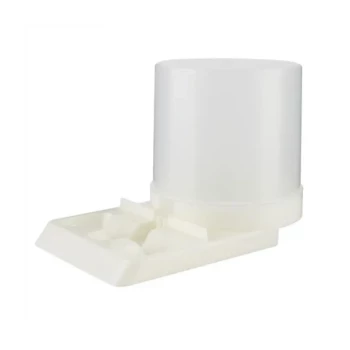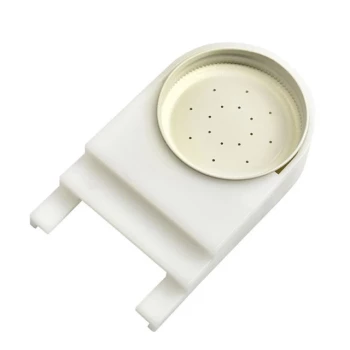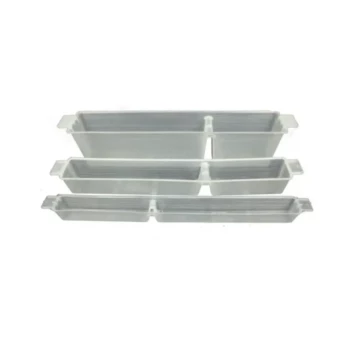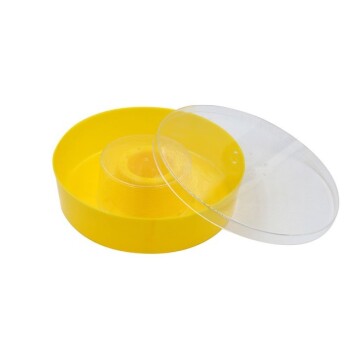To be precise, a bee's diet consists of two primary natural food sources: nectar and pollen. They convert nectar into honey, which serves as their main source of carbohydrates and stored food, while pollen provides essential proteins, fats, and vitamins.
While bees are masters of foraging and food storage, their survival hinges on the availability of these natural resources. Understanding when and why their stores might fail is the fundamental challenge of modern beekeeping.
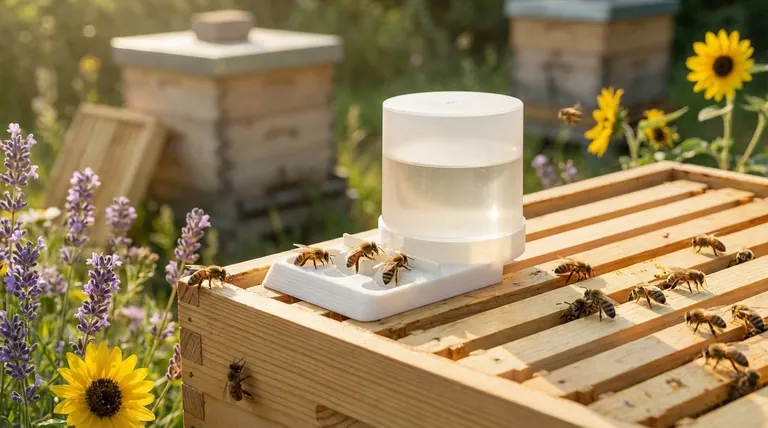
The Two Core Components of a Bee's Diet
Bees are not simply eating honey; they are consuming a carefully balanced diet derived from flowering plants. Each component serves a distinct and vital purpose for the health and survival of the colony.
Nectar: The Carbohydrate Fuel
Nectar is the sugary liquid produced by flowers to attract pollinators. For bees, it is the primary source of carbohydrates, providing the energy needed for all their activities, from flight to hive construction.
Forager bees collect nectar and store it in a special stomach, where enzymes begin to break it down.
From Nectar to Honey: Creating a Stable Food Store
Back at the hive, the nectar is processed into honey. This involves reducing the water content and adding enzymes to prevent spoilage, creating a stable food that can be stored for long periods.
Honey is the colony's essential food reserve, allowing it to survive through winter or other periods when fresh nectar is unavailable.
Pollen: The Protein Building Block
Pollen is the bee's source of protein, lipids, vitamins, and minerals. It is absolutely critical for the growth and development of the colony.
Nurse bees consume pollen to produce "bee bread" and royal jelly, which they feed to the growing larvae. Without a steady supply of pollen, a queen will stop laying eggs, and the colony cannot raise new generations.
Why Human Intervention is Sometimes Necessary
If bees are so self-sufficient, a common question is why a beekeeper would ever need to feed them. The answer lies in bridging the gap when a colony's natural food supply is insufficient to meet its needs.
The Threat of Starvation
The most critical reason to feed bees is to prevent starvation. This is most common in late winter and early spring when the colony's winter honey stores are depleted, but new flowers have not yet begun to bloom.
A sudden cold snap after a warm period can be particularly dangerous, as the bees' increased activity will have used up their remaining reserves.
Supporting a New Colony
A newly established colony, whether from a captured swarm or a purchased package, has no honey stores. Supplemental feeding helps the new hive build comb and raise brood quickly, increasing its chances of surviving the first winter.
Mitigating a Poor Nectar Flow
Environmental factors like drought, excessive rain, or unseasonable cold can lead to a "nectar dearth," where blooming flowers are scarce. Feeding can help a colony survive these challenging periods without losing population.
Understanding Supplemental Feeding
When feeding bees, the goal is to mimic their natural food sources as closely as possible without creating unintended consequences for the hive.
The Goal: Mimicking Nature
The most common supplemental feed is a simple sugar syrup (sugar and water), which acts as a direct substitute for nectar. In cases of pollen-scarcity, beekeepers can also provide pollen patties, a protein-rich substitute.
Common Feeder Types
Beekeepers use several methods to provide this feed. Entrance feeders sit at the hive entrance, frame feeders take the place of a frame inside the hive, and top feeders sit on top of the hive boxes. Each has advantages for specific situations and seasons.
The Risk of Over-reliance
It is crucial to only feed when necessary. Unnecessary feeding can discourage foraging, and feeding during a strong nectar flow can lead to sugar syrup being stored alongside natural honey, contaminating the final product.
Matching Your Actions to the Colony's Needs
Your approach should be dictated by the specific needs of the hive and the environmental conditions.
- If you are managing a new colony: Provide a consistent supply of sugar syrup to help them build comb and grow their population quickly.
- If you are managing an established hive: Monitor their food stores, especially in late winter, and only feed if they are in clear danger of starvation.
- If you are a gardener or homeowner: Planting a diverse range of flowers that bloom from early spring through late fall is the single best way to support local bee populations.
Understanding the fundamental dietary needs of a honeybee colony is the first step toward ensuring its health and survival.
Summary Table:
| Food Source | Primary Nutrient | Role in the Hive |
|---|---|---|
| Nectar/Honey | Carbohydrates | Energy for flight and hive activities; stored food for winter. |
| Pollen | Proteins, Fats, Vitamins | Essential for larval development and colony growth. |
Ensure your apiary's success with the right supplies. A healthy, productive colony starts with proper nutrition and reliable equipment. At HONESTBEE, we supply commercial apiaries and distributors with the high-quality beekeeping supplies and equipment needed to support strong hives through every season. From feeders to essential tools, we help you manage your colonies effectively. Contact our wholesale experts today to discuss your apiary's needs.
Visual Guide
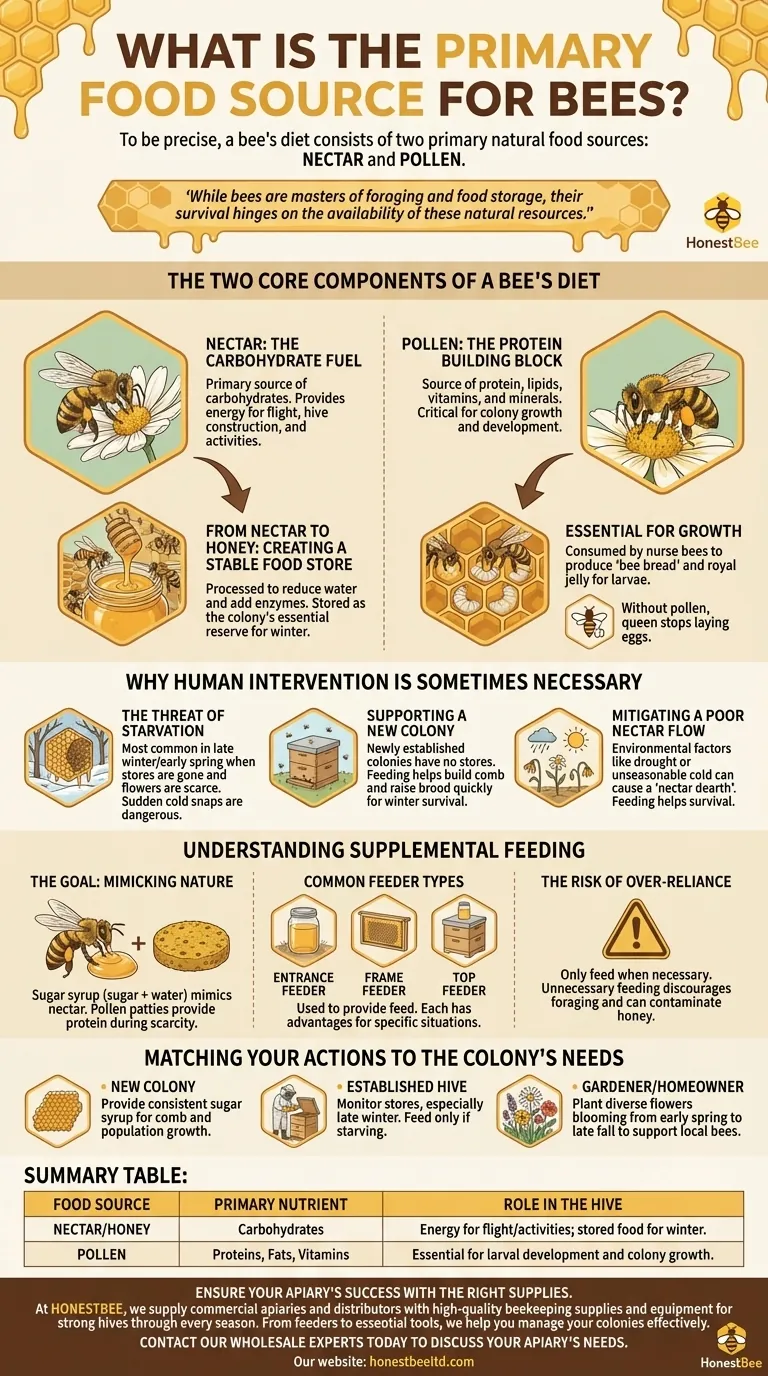
Related Products
- HONESTBEE Entrance Bee Feeder Professional Hive Nutrition Solution for Beekeeping
- Classic Boardman Entrance Bee Feeder Hive Front Feeding Solution
- Professional Hive Front Entrance Bee Feeder
- HONESTBEE Entrance Bee Feeder Efficient Hive Front Liquid Feeding Solution for Beekeeping
- Professional Hive Top Bee Feeder for Beekeeping
People Also Ask
- What are the benefits of dedicating a specific area for beekeeping equipment storage? Protect Your Investment & Boost Efficiency
- How does high-concentration sugar promote royal jelly secretion? Boost Yields with Targeted Metabolic Triggers
- How are high-resolution digital cameras and image analysis software utilized in honeybee colony assessments? Data Precision
- What are the advantages of using specialized image measurement software for bees? Boost Morphological Research Accuracy
- What are the advantages of modern beekeeping technology for stingless bees? Elevate Your Yield and Colony Health
- Why is the use of standardized beehives critical? Ensure Scientific Accuracy in Bee Colony Experiments
- Why is the integration of sensors necessary for beehive monitoring kits? Optimize Colony Health with Precision Data
- What functional benefits do plaited straws or thatch provide in traditional beehive structures? Expert Design Analysis
